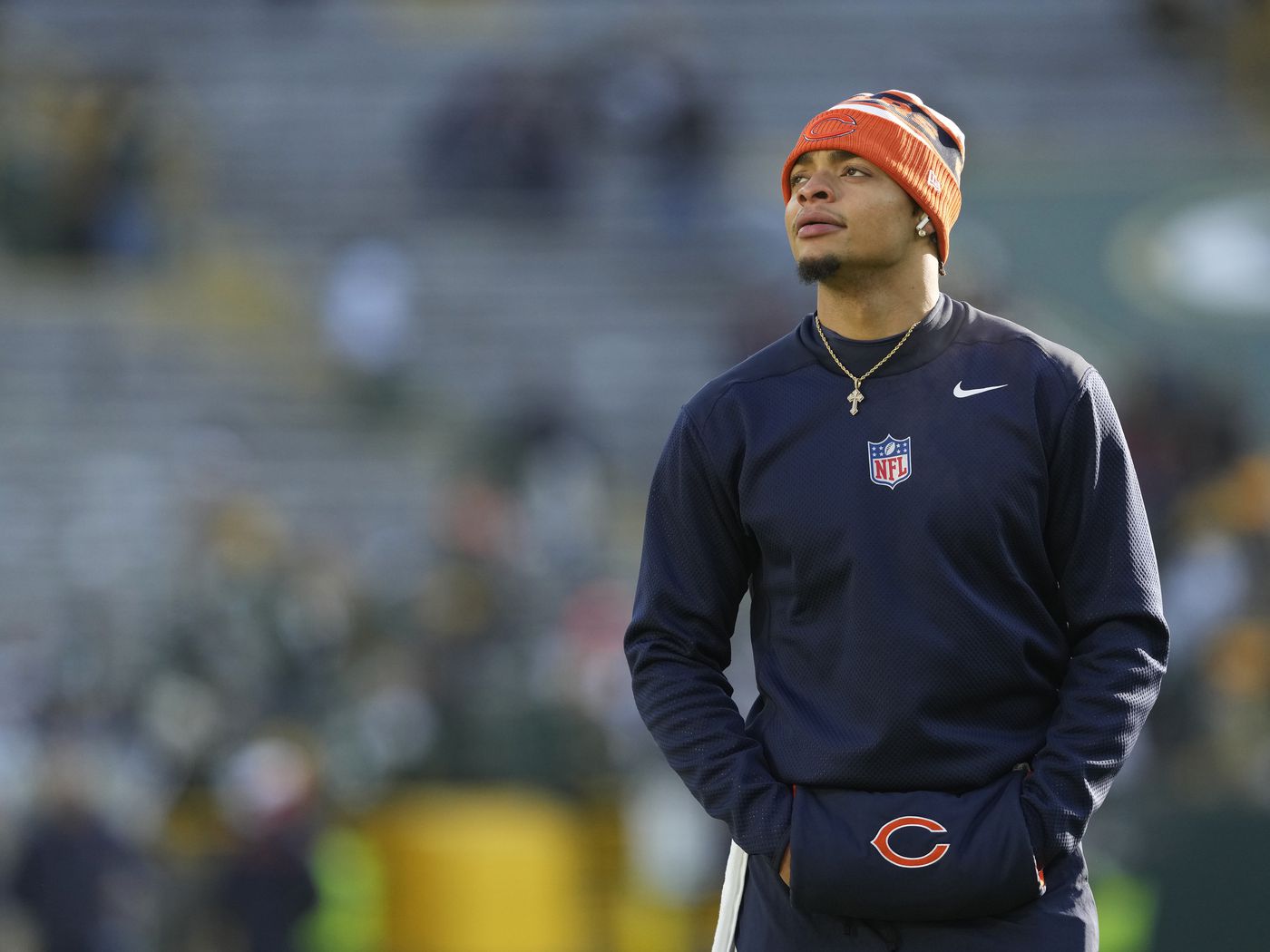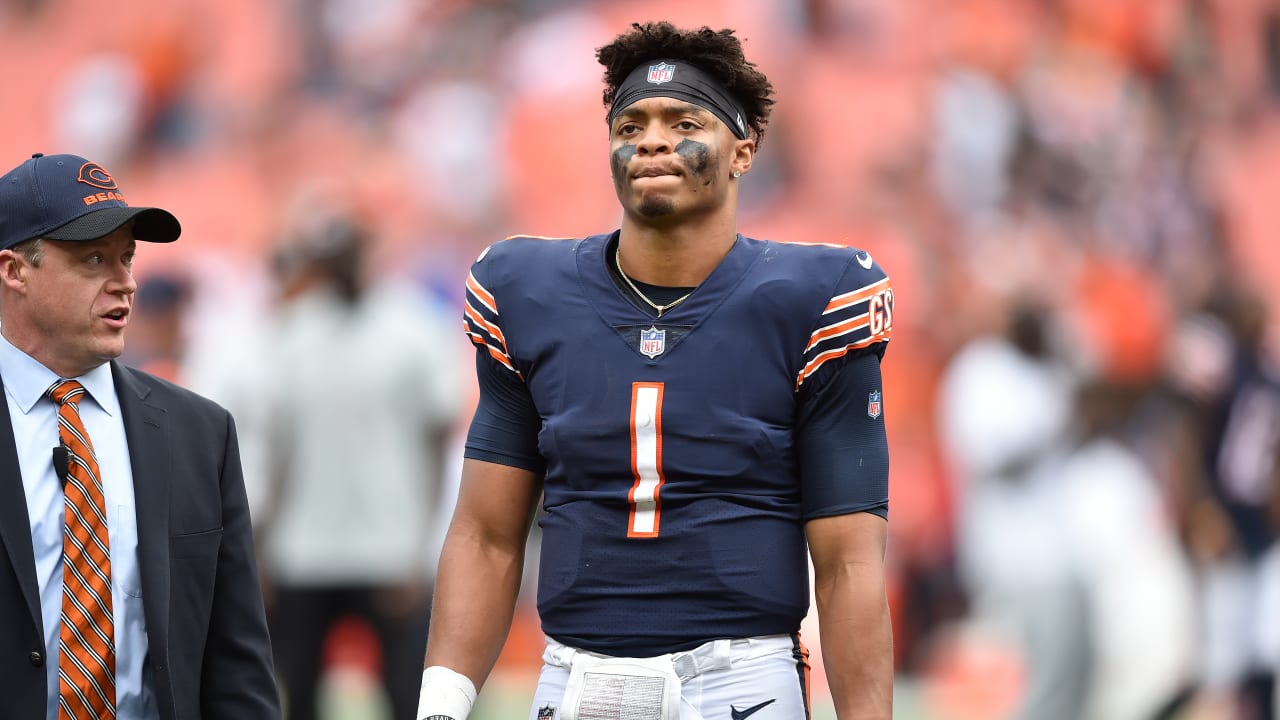In a move that stunned NFL enthusiasts and analysts alike, the Chicago Bears decided to trade Justin Fields to the Pittsburgh Steelers, marking a significant pivot in their team strategy and shaking up the NFL free agency landscape.
This decision has led to a flurry of discussions, debates, and outright bewilderment within the sports community. Here, we delve into the intricacies of this trade, breaking down the winners, the losers, and the unforeseen consequences of what many are calling one of the most lopsided transactions in recent NFL history.

Pittsburgh Steelers’ Strategic Masterstroke
A New Dawn in Pittsburgh Steelers
The Steelers, in acquiring Justin Fields, have arguably positioned themselves as the dark horse in the race for NFL supremacy. At the heart of this strategic pivot is the duo of Fields and Russell Wilson, a combination that promises to rejuvenate Pittsburgh’s quarterback room. With Wilson only signed for a single season and turning 36 in November, Fields represents not just a backup plan but a potential torchbearer for the Steelers’ future.
It’s Pro Day, day!
Justin Fields put on a show day at his Pro Day. pic.twitter.com/Igy6G5vGmu
— Justin Fields Fan Club (@JustinFieldsFC) March 20, 2024
The Calculated Gamble
At 25, Fields brings youth, vigor, and untapped potential to a team eager to reclaim its former glory. The Steelers, under the new offensive coordinator Arthur Smith, are now in an enviable position.
They have managed to secure a player of Fields’ caliber without surrendering a first or second-day draft pick, thanks to the Denver Broncos covering the majority of Wilson’s salary. This move exemplifies Pittsburgh’s low-risk, high-reward strategy, aiming to either rediscover Wilson’s Pro Bowl form or unlock Fields’ full potential.
Chicago Bears’ Blunder
A Dubious Decision
Conversely, the Chicago Bears’ management has faced fierce criticism for its handling of the Justin Fields trade. The decision to trade Fields for a mere 2025 sixth-round pick—which could potentially become a fourth-round pick—has been lambasted as short-sighted and indicative of a deeper misjudgment of Fields’ market value.
General Manager Ryan Poles’ inability to secure even a second-round pick for Fields has raised questions about the Bears’ negotiation tactics and foresight.

Looking to the Future
Despite the backlash, the Bears appear committed to moving forward with Caleb Williams, hoping he can be the cornerstone of their rebuilding efforts. Yet, this strategy does not absolve the Bears’ front office of the criticism it has received for the perceived mishandling of Fields’ trade. The transparency of their intentions to draft Williams may have inadvertently weakened their bargaining position, leaving them with limited options.
The Aftermath and Outlook
Pittsburgh Steelers Playoff Aspirations
For the Steelers, the acquisition of Justin Fields could signify a turning point. Their quarterback room now has the potential to lead the team back to the playoffs under Mike Tomlin’s guidance. With aspirations of contending for the AFC crown, Pittsburgh’s bold maneuvering has set the stage for an exciting season ahead.

Chicago Bears Challenging Path Forward
The Bears, meanwhile, face a challenging road ahead. Their decision to part ways with Fields has been widely criticized, casting a shadow over their prospects. While the focus shifts to Caleb Williams, the Bears’ management will be under intense scrutiny to justify a trade that has, so far, been perceived as a significant misstep.
A Trade That Shook the NFL
The Justin Fields trade saga has been a rollercoaster of emotions for fans and a topic of heated debate among analysts. As the dust settles, the true impact of this trade will be revealed in the seasons to come.
Whether this bold move will be remembered as a strategic masterstroke by the Steelers or a monumental blunder by the Bears remains to be seen. One thing is certain: the NFL landscape has been irrevocably altered, setting the stage for an enthralling chapter in the saga of professional football.

Source: Sportingnews









